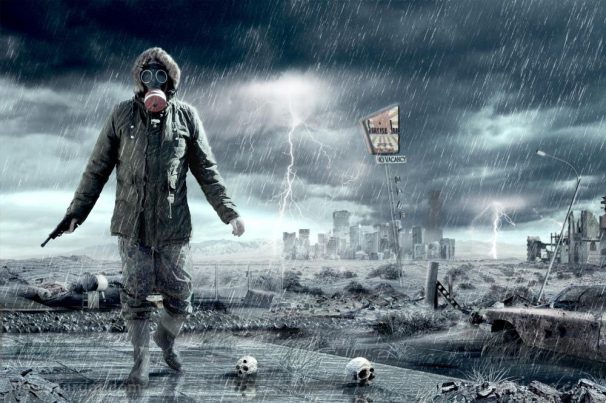Where to safely scavenge for supplies in the city
Wednesday, December 12, 2018 by Mary Miller
http://www.bugout.news/2018-12-12-where-to-safely-scavenge-in-the-city.html

If ever SHTF, are you sure that you will have all of your supplies prepared in time? What if you miss out on some crucial items? What if you run out of food or medicine? Scavenging for survival might not be something everyone will be comfortable with, but in matters of life and death, it can become a necessary evil. Besides, urban scavenging isn’t just about taking what you want. It involves only taking what you need to survive. Here are some of the best places to safely scavenge for survival after SHTF. (h/t to TheSimplePrepper.com)
Distribution and trucking centers
It is important to avoid crowds of other people while scavenging. Most people will flock to obvious locations such as grocery stores. Warehouses, distribution centers, and trucking centers are a commonly overlooked source of useful items. Scavenging in these places can provide you with tools, non-perishable foods, and other supplies. Remember to check any semi-trailers you may find.
Used car lots
Generally, any place where you can find old and abandoned cars is a ripe spot for urban scavenging. Areas in cars where you might something useful include the glove box, the trunk, and the space underneath the seats. If you don’t find any hidden snack or tools in these areas, you can even scavenge the car itself for useful parts. You can use the side mirrors for signaling and the wiring makes for decent cordage. The car battery can provide power and the engine parts may be valuable for mechanical purposes. You can use the upholstery as bedding and insulation.
Abandoned houses
Take great caution when scavenging in abandoned homes as they may still have inhabitants, regardless of how empty they may look. There are many places to check for supplies, such as bedrooms, garages, attics, basements, storage sheds, and gardens. Be on the lookout for storage water heaters and metal mailboxes. Storage water heaters can contain up to 70 gallons of water and metal mailboxes can be converted into wood stoves. Abandoned houses are great places to scavenge for useful items that you can easily re-purpose to suit your needs. (Related: Survival scavenging: 10 Items you can re-purpose when SHTF.)
Marinas
If you live near the ocean, people will often head to the harbor to flee by boat. Wait for the initial rush to pass and scavenge for the leftovers. Check any abandoned boats for emergency food rations, communication and fishing equipment, and even guns. Marinas that are on lakes can typically be overlooked due to their geographical location not being considered a means to escape.
Manufacturing centers and facilities
These areas are often overlooked, but can be well-stocked with tools, gear, fuel, batteries, first aid supplies, and other useful items.
Personal storage facilities
Self-storage facilities are normally well protected. If you have the means and the time to pry the doors open, you might find clothes, gear, equipment, and other non-perishable items that you can re-purpose.
Churches
Churches are supposed to welcome and help those who are in need. If you are in need of survival supplies, then you aren’t really stealing or committing a sin. Churches that regularly have feeding programs may have kitchen closets stocked with plenty of canned food.
Schools
Schools are meant to prepare the next generation to face the world and all of its challenges. You can normally find plenty of tools, fire extinguishers, first aid kits, and cleaning supplies in most schools. The school library can also provide important information from manuals and textbooks. You might even be able to find some food in the school cafeteria. Lockers might also contain snacks with long shelf lives. While they might not have as much payoff, lockers are much easier to pry open than the doors of storage facilities.
If you want to learn about scavenging for survival, you can read more articles by going to Survival.news.
Sources include:
Tagged Under: Tags: bug out, Collapse, emergencies, emergency preparedness, Gear, off grid, preparedness, prepper, prepping, prepping tips, repurposed items, scavenging, scavenging locations, self sufficiency, SHTF, survival, survival food, survival gear, survival skills, survivalist, urban scavenging

